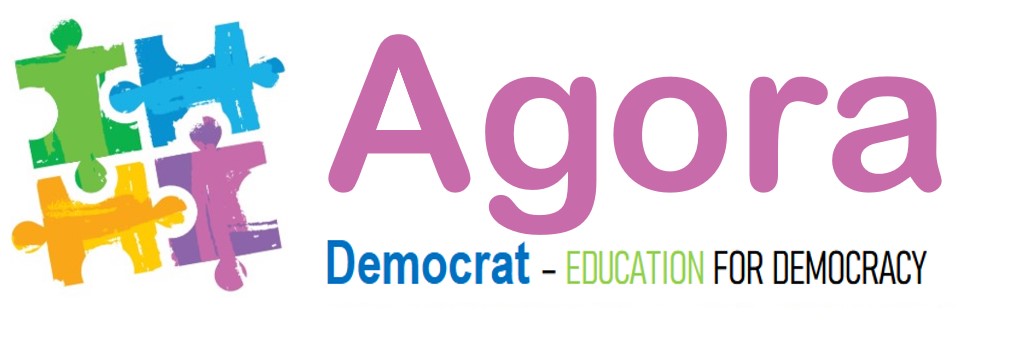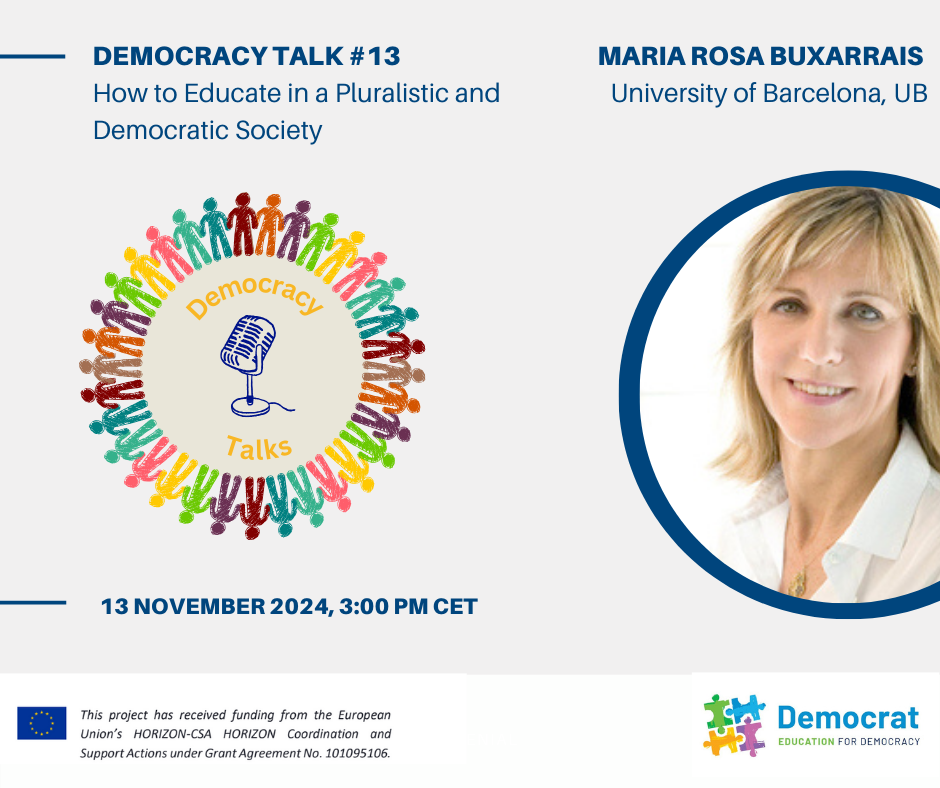Two weeks ago we spoke with Maria Rosa Buxarrais of the University of Barcelona during our Democracy Talks. Maria discussed “How to Educate in a Pluralistic and Democratic Society” in the context of higher education. The session delved into the challenges and opportunities of embedding ethical competences and democratic principles within education systems.
Key Themes Explored
- The Role of Higher Education in Developing Ethical Competences
Dr. Buxarrais highlighted the multidimensional nature of ethical education, emphasising three core areas:- Self-construction: Building self-awareness and regulation.
- Living Together: Cultivating empathy, social skills, and dialogue.
- Socio-Moral Reflection: Encouraging advanced moral reasoning.
Higher education institutions were positioned as spaces for equipping students with professional skills and the capacity for critical thinking, commitment to justice, and active citizenship.
- Educational Practices that Foster Democratic Values
Practical methods such as service-learning, problem-based learning, and restyled teaching methodologies were presented as tools to promote ethical reflection and action. Dr. Buxarrais also stressed the importance of creating institutional cultures prioritising dialogue, participation, and human dignity and rights commitment. - Ethical Competence as a Foundation for Democratic Citizenship
The session underscored the necessity of fostering moral habits, critical media literacy, and a sense of community belonging. Dr. Buxarrais noted that ethical commitment must extend beyond individual actions, encouraging students to engage in solving social problems at local, national, and global levels.
Questions for Reflection
- How can universities create environments that encourage dialogue, empathy, and social skills?
- In what ways can higher education foster ethical competences that go beyond professional skills, such as commitment to justice and human rights?
- How can primary and secondary education systems prepare students for democratic citizenship through empathy, self-regulation, and social skill development?
- How can universities balance ethical training with the technical demands of professional fields, especially in areas where ethical dilemmas frequently arise?
Upcoming Events
Join us on TODAY for Democracy Talk 14, featuring Hilmi Tekoglu of SOLIDAR Foundation. He will discuss “Promoting democratic participation and engagement – the AKA project”.
AKA (Awareness, Knowledge, Action) Active Citizens is a 2-year project, coordinated by SOLIDAR Foundation, carried out in a consortium of 8 partners across Europe namely Belgium, Croatia, France, Germany, Greece, Italy, Portugal, and Spain. The project’s primary objective is to promote democratic participation and engagement at the EU level among young citizens from marginalised/underrepresented backgrounds across the participating 8 countries. AKA Active Citizens project is funded by Citizens, Equality, Rights and Values (CERV). You can learn more here
Don’t miss out on this enriching discussion and tune in LIVE on YouTube via this link: https://www.youtube.com/@democrathorizon


Leave a Reply